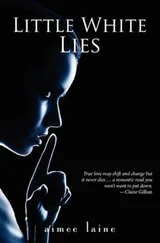And now, breakfast.
Paraiti rekindles the fire and hangs a billy of water on an iron rod supported by two strong branches; she also puts a skillet among the hot embers.
Tiaki comes back with a second bird.
‘It’s not the same one we let go, is it?’ Paraiti asks. She has a sneaking suspicion that Tiaki has sometimes clipped the bird’s wings with his teeth so that it can’t fly too far and, when she is not looking, brings the same bird back.
Tiaki ignores her accusation. He drops the pigeon at Paraiti’s feet and, now that he has done his duty by his mistress, disdainfully he is off again, this time in search of his own breakfast.
Paraiti plucks the pigeon and puts it in the skillet; very soon it is sizzling in its own fat. From one of her saddlebags she takes some damper bread and manuka honey. There’s nothing like a fresh pigeon and damper bread running with manuka honey to soothe the gullet and start the day. A cup of manuka tea is made in the billy and, ka pai, with that extra stimulation to the blood and senses, she is in seventh heaven.
Once she’s breakfasted, Paraiti is keen to get going. ‘Time to saddle up,’ she says.
She puts on a wide-brimmed hat with a string that she ties under her chin. Quickly, she dismantles the tent and bedding and stows them in the saddlebag. She goes down to the river to rinse the breakfast implements, then douses the fire and buries the contents of the cuspidor in the ground. Nobody would ever know she’d been here.
At Paraiti’s whistle, Ataahua and Kaihe come at the gallop. She loads Kaihe first, making sure the weight is evenly distributed across his spine — wouldn’t want an unbalanced load to endanger the mule as he is climbing the steep slopes — and then she puts the bridle and saddle on Ataahua and taps his knees. Once upon a time she could get on a horse without trouble, but these days it’s too much for her old bones.
Ataahua obliges, going down on his front legs. He waits for Paraiti to lift herself aboard and settle, and then hoists himself up with a whinny of grumpiness; over the last few years his mistress has got not only older but heavier. And him? Well, his joints are troubling him too.
‘Me haere tatou,’ Paraiti tells Ataahua. ‘Let us go.’
Pulling her mule after her, Paraiti fords the river at its shallowest crossing; she doesn’t want to get wet, but, even so, Ataahua slips into a hole and her hem dips in the water.
Quickly Paraiti shouts, ‘Hup!’ before the fool horse dumps her completely in the water, and urges him up and onward. Scolding him for not being as young as he once was, she spurs him to climb the track on the other side. Every now and then on the way up she looks behind to check the load on Kaihe.
By the time Paraiti reaches the top of the ridge, Tiaki has joined her with a supercilious look on his face. The mist has lifted from the valleys and the air is clear. The forest is raucous with birdsong. Far away, Paraiti can see the smoke rising above the village of Ruatahuna, her destination.
Paraiti is not the name she was baptised with.
She was given it when she was six years old and became ‘The One with the Blighted Face’, for the bright red welt that travels diagonally from her right temple across the bridge of her nose and, luckily missing her left eye, reappears to feather her left cheekbone.
The scar was caused when Paraiti was a young girl, six years old, in 1880. Her parents and other kin were travelling deep within the Urewera country; her father Te Teira was a tohunga, a revered priest and healer, and the other men and women in the group were accompanying him to a Ringatu church service at Ohiwa. One evening, just as they were settling down for the night’s meal, they were set upon by constabulary forces who were hunting bigger game — their leader Te Kooti Arikirangi. They recognised Te Teira: although Te Kooti and his followers had put aside their arms, they were still being pursued.
The constabulary restrained Te Teira and the other men with ropes; Hera, Paraiti’s mother, had tried too late to take Paraiti into the bush while the forces ransacked the encampment. When the constabulary couldn’t find Te Kooti, one of them, a burly menacing man, took a burning branch from the cooking fire. ‘Tell me where your leader is,’ he shouted at Te Teira.
He was waving the branch so close to Te Teira’s face that sparks flew all around him, setting fire to his shirt. Te Teira cried out with terror and fell back onto the ground. The man advanced on him and raised the branch threateningly. ‘It will be the worse for you if you do not tell me your leader’s whereabouts.’
Te Teira persisted in his pleas: ‘I don’t know where the prophet is.’
Looking on, Paraiti felt only one desire, to save her father, and she jumped onto the attacker’s back to distract his attention.
The man reached behind him, clutched Paraiti and, holding her up by her hair, dangled her before him. ‘Is this your cub?’ he asked Te Teira. He slashed Paraiti’s face with the burning branch and then threw her against the trunk of a tree.
It happened so quickly, but the memory has never left Paraiti in all these years. The pain of the burning. The shock as she slammed into the tree. The pain again, waves of it almost overcoming her. Dazed, she had tried to stand. As her parents and relatives were led away to be imprisoned, Te Teira cried out, ‘Daughter, quickly, go to the stream and lie down in the cold water.’
Somehow, Paraiti found the strength to follow his instructions. Her face was on fire as, stumbling, she made her way down the slope to the stream. No sooner had she immersed herself in the water than she fainted.
How long she was unconscious, Paraiti didn’t know. Covered in mud, she was found by local Maori who cared for her as her face bubbled and blistered. They applied healing ointments, but there was nothing they could do to reverse the scarring.
A month later, Paraiti left her caregivers and followed the constabulary, looking for her parents. Having heard that they had been taken to Whakatane to await sentencing, she found them in a small jailhouse. She threw stones through the barred window until they looked out. They were overjoyed to see her but Te Teira grieved to see her face.
Once, she had been such a pretty girl.
‘Aue, daughter …’
Paraiti stayed with local Maori, waiting for the circuit judge to arrive to hear the case brought by the constabulary against her parents and her whanau; she visited them every day, squeezing small food delicacies to them through the bars.
At the trial she managed to slip into the courtroom to await her parents’ release. Instead Te Teira and Hera were sentenced to two years’ imprisonment for taking up arms against the government and were transported by coastal steamer from Whakatane to Auckland. She followed overland and eventually found them again in the Pakeha prison on the outskirts of the boisterous town.
‘It is too dangerous for you here,’ Te Teira told her. ‘Go to Te Kuiti and wait for us there.’
‘No,’ she said, shaking her head.
Instead, she lived close by the prison in a small squatter settlement with others who had also come to wait out the jail sentence of loved ones. Sometimes she would hear her parents singing comforting songs to her. That is, until the constabulary chased her away.
One day Paraiti witnessed the hanging of one of the faithful. His name was Hamiora Pere, and when the hangman placed the rope over his head he requested that he be given the chance to sing a waiata of farewell. ‘Unloose the knot from my throat that I might sing my song,’ he said.
His was a terrible death — the sudden fall through the trapdoor, the crack as his neck snapped. Looking on, Te Teira cried out angrily to Paraiti, ‘Now will you go to Te Kuiti? If I am next, I don’t want you to see me, lifeless, dangling from the scaffold.’
Читать дальше












